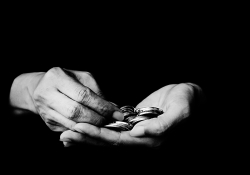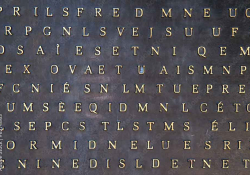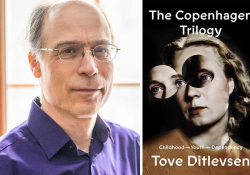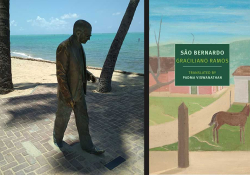Niksen

In her ongoing column about untranslatable words, Veronica Esposito here considers the Dutch concept of niksen—to do nothing. But is niksen really something the Dutch have perfected, or are we all just thirsty for more Scandinavian wisdom in the wake of hygge?
The Dutch concept of niksen has been promoted as an antidote to a world perpetually burned out by too many smartphone notifications, Zoom meetings, and productivity spreadsheets. In the wake of the remarkable global takeover of the Danish/Norwegian hygge, it has been touted as another Scandinavian lifestyle hack bound for greatness. But maybe not quite: after a PR blitz in 2019 that included pieces in the New York Times and The Guardian, niksen only registers about seven hundred thousand hits in a Google search, compared to the roughly thirty million hits for hygge. Perhaps we have hit the point of overhyping buzzwords in translation?
Perhaps we have hit the point of overhyping buzzwords in translation?
Niksen has been translated to English as essentially “to do nothing,” and it has been differentiated from its near-cousin “mindfulness”—the latter would be a period of immersion in the present moment, while niksen seems to have more to do with cultivating mindlessness, or mind-wandering. With that said, however, the distinction seems a little unclear, as many suggested niksen activities come off like mindfulness. Moreover, it is still a little challenging to know exactly what niksen is supposed to be. After all, just what does it mean to do nothing? The more one reads into this concept, the less clear it seems.
Most sources tend to agree that it has to do with letting your mind wander, but they will often quickly add that this is not so simple to do, particularly in capitalist societies that tend to valorize productivity. Olga Mecking, who authored Niksen: Embracing the Dutch Art of Doing Nothing, writes that “there is very little consensus on what it actually means,” before stating that many of the experts she surveyed for her book considered the concept to have something to do with the feeling of boredom. She also quotes author Jenny Odell, author of the book How to Do Nothing, who offers a clinical-sounding definition: “finding even small interstitial spaces of non-goal-oriented activity—wherever one can get away with it.”
One might also want to distinguish niksen from another near-cousin, procrastination. For instance, writing in the New York Times, Mecking quoted psychologist Sandi Mann, who offered the following thoughts on niksen: “[It’s] when we’re not doing the things we should be doing. Because perhaps we don’t want to, we’re not motivated. Instead, we’re not doing very much.” So, niksen becomes blended into procrastination, even though the two concepts have very different cultural connotations.
Interestingly, I could not find any scholarly sources regarding niksen in English from before 2020, and many of the research sources I was able to find that celebrated niksen-like activities did not actually mention niksen at all. For instance, a paper by Joseph S. Alpert, MD, celebrated the Italian saying “‘dolce far niente,’ or ‘it is sweet doing nothing.’” In the paper, the author reported that this cultural tradition went back at least to 1814, when the phrase came into usage. This paper was cited in a paper on niksen even though Alpert’s paper doesn’t mention niksen at all, and its list of suggested behaviors (“drink wine with lunch”; “read something romantic”) don’t really sound like niksen. Even more confoundingly, I could not find any hits for niksen in Google that came from before 2010; dictionary.com claims that the word first came into usage around 2010 to 2015.
This was all a little eyebrow-raising. The other untranslatable words that I have conceptualized in this column all have documented histories that stretch back for some time, and they are deeply embedded in their native cultures. By contrast, many, many sources talk about how niksen is a cultural practice of the Dutch, but none that I have seen actually substantiate that claim with details.
Writing in The Guardian earlier this year, Viv Groskop seems to echo my findings: “It’s not a quintessentially Dutch idea. I couldn’t find any record of the use of niksen in the Dutch language before the late 2010s.” But just how Dutch is doing nothing, really? And how did the word originate? Groskop also quotes various Dutch sources who don’t seem to think the concept is particularly Dutch in nature, including sociologist Ruut Veenhoven: “Niksen is a media concept, like Blue Monday,” says Veenhoven, an emeritus professor of social conditions for human happiness at Erasmus University Rotterdam. Blue Monday, the third Monday of January, was once thought to have been “calculated” to be “the most depressing day of the year.” It later emerged that the concept was dreamed up by a travel company.
This does leave one to wonder why so many sources, from Time magazine to Big Think to a website dedicated to so-called blue zones (areas that are supposedly known for engendering longevity in human beings) all confidently assert that the Dutch have perfected the art of niksen. To the contrary, in her article Groskop cites research indicating that burnout is on the rise in the Netherlands; moreover, other articles on niksen have suggested that the tendency for the Dutch to rank high on measures of national happiness likely has little to do with niksen (and possibly more to do with having a strong social safety net).
Niksen would be untranslatable in the sense that there’s not really anything to translate.
Given my findings, I would venture to say that niksen is not a deeply held cultural belief of the Dutch; it is likely more of a phenomenon that emerged following the cultural takeover of hygge—when the world was thirsty for more wisdom in the art of living from Scandinavia—and in the wake of successful antiproductivity books like Odell’s How to Do Nothing. In other words, it seems to be a bit of a case of the tail wagging the dog. This word would be untranslatable in the sense that there’s not really anything to translate.
The case does raise some interesting questions about precisely where words and cultural concepts come from. After all, one could easily imagine that decades down the line there might very well be a real Dutch art of niksen; as with my column on Boontling, this one highlights the fact that language really is just stuff made up by human beings, and it is very much given to randomness, haphazardness, chance, and opportunity. Some of these concepts—like the Albanian besa (which will be featured in my May WLT column)—find fertile cultural soil, catch on, and develop into something profoundly entwined with a regional consciousness. That process could very well happen with niksen, but as we have seen with other words and cultures, that process tends to take a very long time. For instance, think about the decades that it took the German sehnsucht to evolve through the Romantic movement, aided by some of that region’s brightest literary and artistic minds; or how schlemiel and schlimazel developed through the Jewish diaspora during the European Middle Ages. Clearly, niksen needs more than a few decades.
Given the very transnational origins of niksen—if anything, it seems to be a marketing phenomenon by people eager to sell a concept reminiscent of Scandinavian culture to English-speakers in the Anglo-American nations—maybe this will be a word born in translation. That is, born in between cultures and languages, taking root amid various societies that are all coming up against the ideas of productivity and purpose endorsed by capitalist economics. If so, that would be a different kind of phenomena than the ones I’ve covered before, and a different notion of the untranslatable.
Oakland, California













